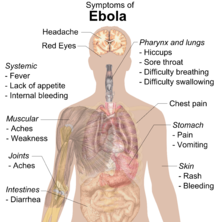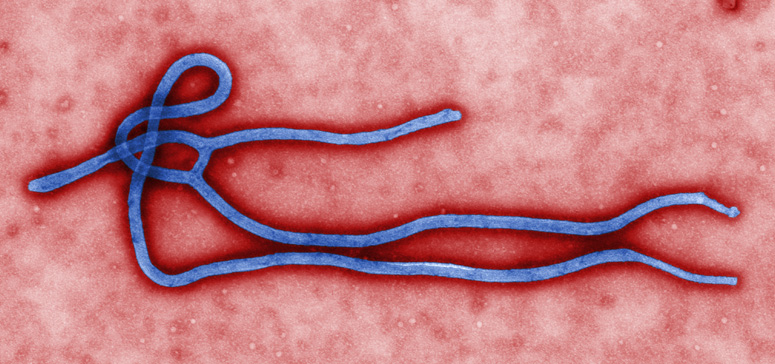The 2014 Ebola outbreak has become one of the largest Ebola outbreaks in history and the first outbreak in West Africa. Currently, it is affecting four countries in West Africa: Guinea, Liberia, Nigeria, and Sierra Leone.
So far the outbreak does not pose a significant risk to us here in the U.S. public. Currently the CDC does not know exactly the manner in which the virus first appears in a human at the start of an outbreak is unknown. However, researchers have hypothesized that the first patient became infected through contact with an infected animal. In humans, the virus can be spread in several ways to others. The virus is spread through direct contact (through broken skin or mucous membranes) with
- a sick person’s blood or body fluids (urine, saliva, feces, vomit, and semen)
- objects (such as needles) that have been contaminated with infected body fluids
- infected animals
Individuals who has been infected for only a few days is difficult, because the early symptoms, such as red eyes and a skin rash, are nonspecific to Ebola virus infection and are seen often in patients with more commonly occurring diseases.
Symptoms of Ebola typically include
- Fever (greater than 38.6°C or 101.5°F)
- Severe headache
- Muscle pain
- Weakness
- Diarrhea
- Vomiting
- Abdominal (stomach) pain
- Lack of appetite
For Humans, many of the symptoms appear anywhere from 2 to 21 days after exposure to Ebola, although 8-10 days is most commonly the required time.
Some who become sick with Ebola are able to recover. We do not yet fully understand why. However, patients who die usually have not developed a significant immune response to the virus at the time of death.
No specific vaccine or medicine (e.g., antiviral drug) has been proven to be effective against Ebola.
Symptoms of Ebola are treated as they appear. The following basic interventions, when used early, can increase the chances of survival.
- Providing intravenous fluids and balancing electrolytes (body salts)
- Maintaining oxygen status and blood pressure
- Treating other infections if they occur
The treatment of Ebola is important but challenging because the disease is difficult to diagnose clinically in the early stages of infection.
Learn More at the CDC here.


